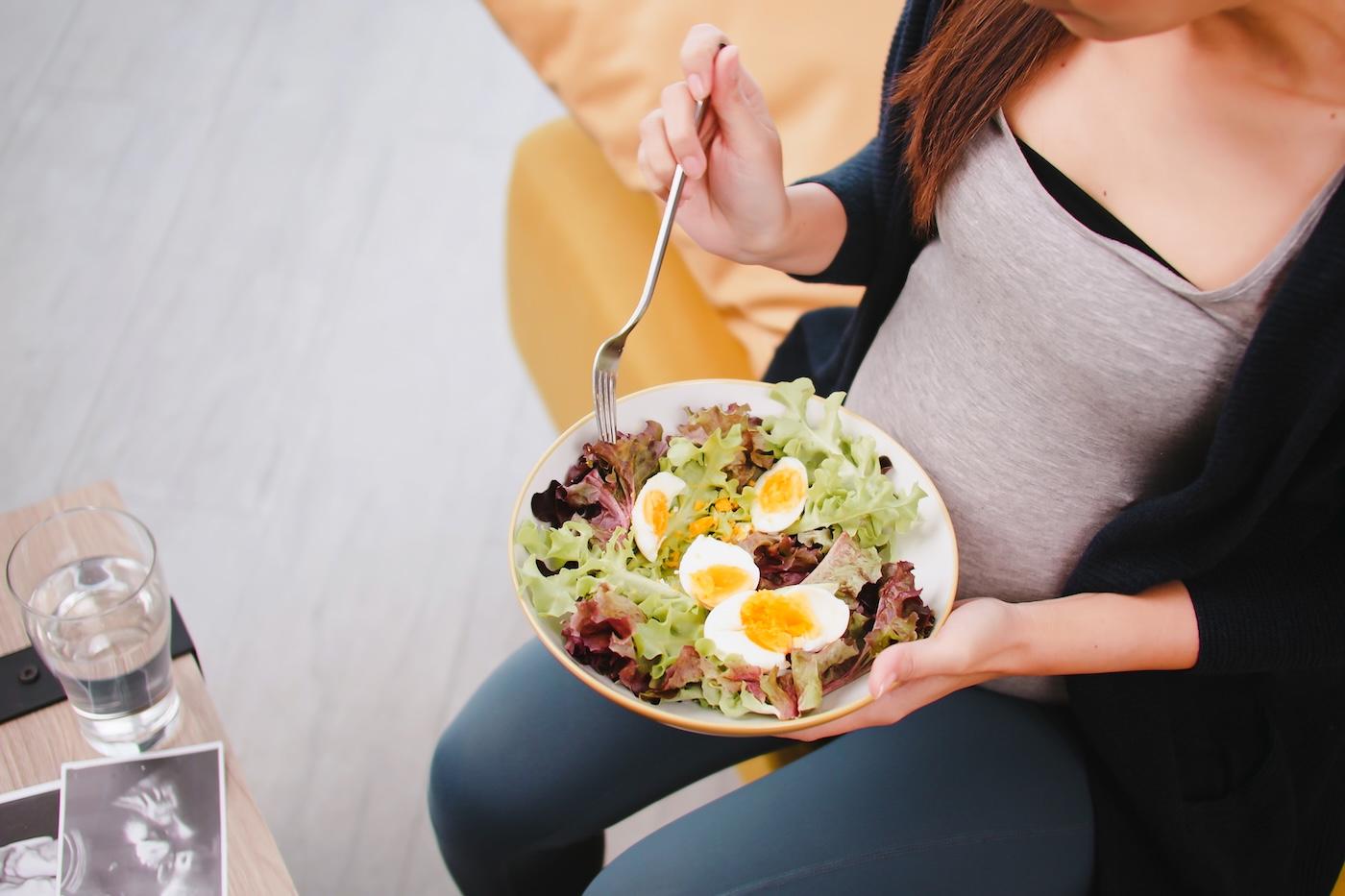PREGNANCY
5 Weeks Pregnant: Yup, Your Body Is Already Changing!
First trimester symptoms aren’t a walk in the park. You may feel extra hormonal, because, well…you are!

Written by
Happiest Baby Staff

5 Weeks Pregnant: Baby Update
Your baby is teeny-tiny, but there’s a lot going on inside this itty-bitty embryo! The basis for your little one’s internal organs, including their stomach and kidneys, is forming. They also already have the start of a spinal cord, arms and legs. Your bub’s brain is growing incredibly fast, and optic nerves are beginning to develop on either side of their head. These nerves will become their eyes and will move to the front eventually. This week, your baby’s heart—which is currently located outside their body!—begins dividing into chambers. Your babe-to-be is feeding off the yolk sack that is part of your egg, as your placenta is not yet formed.
How Many Months is 5 Weeks Pregnant?
5 weeks pregnant is 1 month pregnant.
Baby’s Size at 5 Weeks Pregnant
At 5 weeks pregnant, your baby is the size of a poppy seed.
5 Weeks Pregnant: What to Expect
First trimester symptoms aren’t a walk in the park. Nausea, fatigue, gas, and bloat are common. You may feel extra hormonal, because, well…you are! It’s perfectly normal for PMS-like emotions to erupt at any time, but the good news is that most of these symptoms ease after 12 weeks (only to be replaced with new ones.)
An early sign of pregnancy might be something you don’t expect: bigger breasts. These body changes are almost immediate. Yours will not only increase in size, they’ll also probably feel a bit sore. Pregnancy hormones progesterone and human chorionic gonadotropin (hCG) cause increased blood flow to the breasts. Some jump two cup sizes right away, but there’s no real rule of thumb here. Your cup size might keep going up, and because your ribs expand to make room for your growing uterus, your band size will, too. To stay comfortable, look for cotton bras that give you a little room to grow. Fascinating fact: It’s possible to gain up to 1-½ pounds per breast!
5 Weeks Pregnant: To-Do List
- If you haven’t already, confirm your pregnancy: This week, rising levels of hCG, which your body starts producing as soon as your egg is fertilized, are now detectable with an over-the-counter pregnancy test. False negatives are possible, but false positives are very rare. It’s on!
- Decide on an OB/GYN or midwife, and make your first appointment: The early stages of pregnancy are all about finding a healthcare provider you like and trust. That may mean visiting a few different offices. Consider that you’ll be traveling to this office for prenatal appointments about once a month during early pregnancy, then every two weeks during the beginning of the 3rd trimester, then every week as you get close to your due date. You’ll want to pick a provider that’s relatively close and convenient and who takes your insurance. FYI, most doctors won’t want to start regular pregnancy appointments until you are about 8 weeks along. (More on who to see for prenatal care.)
- Rest: It seems so strange that such a tiny being might drain your energy, but it is normal to feel completely exhausted. Trust what your body is telling you and know that this stage (like all of them) is temporary. Your body is working extremely hard right now to produce extra blood and build your placenta. Napping helps, as does moderate exercise, especially in the morning. (Here are some prenatal workouts to consider.) Drink plenty of water and start taking prenatal vitamins that will deliver necessary iron. Get help with chores or just accept it will be a little messier around the house.
- Say no to raw or undercooked meat: Raw or undercooked meat and raw milk can be a source of toxoplasmosis, a parasitic infection. Toxoplasmosis is extremely rare—only about 1 in 1,000 pregnant women get it—but is dangerous, especially during early pregnancy. (Read about why food poisoning during pregnancy is so risky.) Other surprising sources that can spread this disease are cat feces (have someone else change the litter box for a few months) and soil (don’t garden without gloves). Cook all meat past the pink point and scrub cutting boards, counters, and hands with soapy water after contact. To be safe, rinse all fruits and vegetables before eating. These simple steps can also help to protect you against bacteria like salmonella and listeria. Learn more about foods to avoid during pregnancy.
Pregnancy Fun Fact: Placental Placement
If your egg implants on the side of your uterus closest to your spine, your placenta will grow right there on the back of your uterus. It’s a position called posterior. If your egg implants on the opposite side, your placenta will be anterior (on the front of the uterus). Both are totally healthy, but if your placenta is anterior, it might take longer for you to feel your baby’s kicks and movements because the placenta acts as a cushiony layer between your belly and your baby. Placentas can actually move during pregnancy(!), so an anterior placenta can change by the time you’re ready to give birth.
< 4 Weeks Pregnant | 6 Weeks Pregnant >
Disclaimer: The information on our site is NOT medical advice for any specific person or condition. It is only meant as general information. If you have any medical questions and concerns about your child or yourself, please contact your health provider.
SHARE THIS ARTICLE
MOST LOVED
Sleepytime Sidekicks












